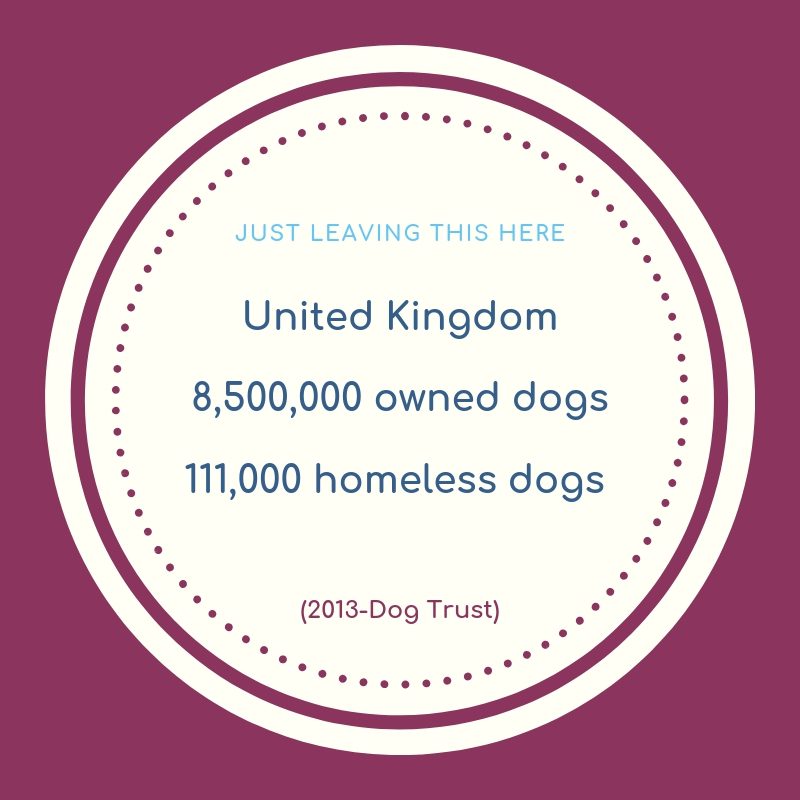A dog can be the most rewarding but also the most demanding pet. Choosing the right one for you can be difficult. Before looking at any breed of dog, you should ask yourself this.
Have I got time in my life for a dog in my life? Can I commit my life to a dog for at least 15 years, maybe even more?
You are responsible for your dog’s health, care and happiness. It is easy to pick up a dog and not think of the life long responsibilities. The dog you chose may be with you for 15 years or more. So, before picking a dog consider the effort, time and money required to sustaining a healthy happy dog. You are responsible for your dog’s behaviour and you should consider this when training your dog. Good manners and socialisation are key when training. If unforeseen circumstances arise and you are no longer able to look after your dog, lack of manners and communication can make it hard for your dog’s future.
What breed should I choose?
Carry out your research. The main tip we advise is conducting your research before picking a breed. The behaviour of a toy breed (Yorkshire Terriers, Shih Tzus and Chihuahuas) will be completely different from a herding breed (Corgis, Collies, Shetland Sheep Dog). As the behaviour of a guarding breed (Dobermanns, Rottweilers and Bernese Mountain Dogs) will be completely different from the behaviour of a terrier breed (Cairn Terriers, Miniature Schnauzer, Airedale Terriers). This research is important when thinking of breeds that can fit your home perfectly. There are resources upon resources out there that can give you the best information possible, such as The Kennel Club and Pedigree.
Please find here, a questionnaire made by that can help you pick a breed that is fit for you!
It is also important to know, that with the growing world of crossbreeds, that it is hard to distinguish what the dominant behavioural trait might be when it comes to cross breeds. With the rise of Cockapoos (Cocker Spaniel x Poodle), Puggle (Pug x Beagles), Goldadors (Golden Retriever x Labrador Retriever) you name it, there is the never a strong understanding of what breed behaviour is going to be the more dominant in the genes. Although it is known that cross breeds carry the best of both traits.
Taking on an adult dog
Taking on an adult dog can sometimes be better than having a puppy. This is because they would have already got past their chewing and destructive phase and they would have already formed their good and bad traits. However, the main issue with rehoming is that it can sometimes reflect previous upbringing problems. So there may be some problems to try and overcome.
If you chose an adult dog, the chances are it will be a rescues dog from one of three sources: a charity such as Birmingham Dogs Home, a private home where the owners were no longer able to look after the dog any longer, or a breed rescue club such as Greyhound Dudley Trust.
If you go to a charity centre, you shall be guided by the staff. They know their animals in their rehoming centre and the main aim of any rescue centre if to find a loving, long-term home for dogs that have been the unfortunate victims of circumstance. For example, a rescue dog may not like cats, or may not be able to live with children. If the dog has behaviour problems, for example, it cannot be left alone for long), then the staff at the rescues home should be able to give advice and assistance in order to overcome the problem.
Whereas taking the dog from a private home is more problematic. The person you are getting the dog from may not be the first owner, and the dog may have had several homes, this sort of information can be difficult to find out.
 Choosing your dog
Choosing your dog
Once you have done your research, spoken to kennel staff or spoken to a previous owner, it is time to ask yourself these questions:
- Have you been given enough information about the dog’s history?
- Have you had a chance to take the dog for a walk and play together so you can see what the dog is like away from the kennels, or away from home?
- Do you have a full veterinary history? What illnesses or operations has the dog had? What vaccinations have been given and have you seen proof such as vaccination certificates? Also, make sure you have a written agreement that taking the dog is subject to a satisfactory veterinary inspection. This is to be done within 72 hours of your doing so.
- What help or advice is available should there be veterinary or behavioural problems after you have taken the dog?
If yours is a rescue dog, make sure you find out as much information as you can. If you are rehoming from a charity or a breed rescue club, check if a pet insurance cover note is available. Be sure to cover any early, unforeseen veterinary costs.
Please find a blog here, that can help you with the care of your new puppy! With any questions please do message us here, through our Facebook page or give us a call on 01902 494 860.










